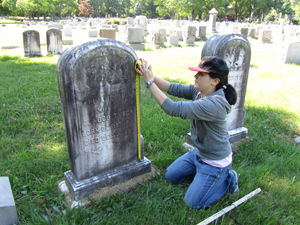How to clean marble headstones.
Marble gravestones weathering.
One project is using gravestones to better understand how the elements particularly acid rain are weathering rocks around.
It is customary to associated particular types of gravestones or environments with particular weathering processes.
Material the gravestone is made from environment the gravestone is in process by which the gravestone is weathered form of the weathering on the gravestone.
They are both very similar in a lot of ways.
Are barely legible because acid rain created by factory pollution has dissolved a lot of the calcite in the limestone and marble gravestones.
Others are weathering or semi weathering meaning they will change color usually to shades of brown when used.
Some materials are unfading meaning they will hold their basic color even after many years of exterior use.
The four factors are.
Headstones are subjected to weath.
Physical weathering is the toll put on rocks by.
The form of weathering observed on gravestones is a product of four interconnected factors and how they vary both spatially and temporally i e in space and time.
Most studies assume that differences in the linear regression equations between sites represent differences in the influence of different pollution histories.
Marble tombstones aren t as popular today as granite or bronze gravestones because marble is highly vulnerable to stains and damage.
Quartzite also has a pattern similar to marble which is why many choose marble over granite even though marble doesn t last as long.
Weathering processes on headstones and monuments alison tymon march 2012 weathering is defined as the breakdown of rock in situ that is without being moved.
Following the idea that marble gravestones would weather mainly by dissolution it is thought that weathering loss would be linear.
But for the most part quartzite is harder and denser since it is made of quartz is much more resistant to chemical physical weathering.
Nevertheless for some families marble is still the stone of choice because of its natural beauty.
Gravestones made from sandstone are easier to carve than a harder material but this also means they often exhibit poor weathering resilience resulting in lamination or exfoliation causing large portions of the stone to fall off blistering of the stone surface discolouration due to soot or a reaction between sulphur dioxide and calcium.
Weathering processes depend upon the pres ence of water the temperature the mineral composition of the rock and its chemical com position.

